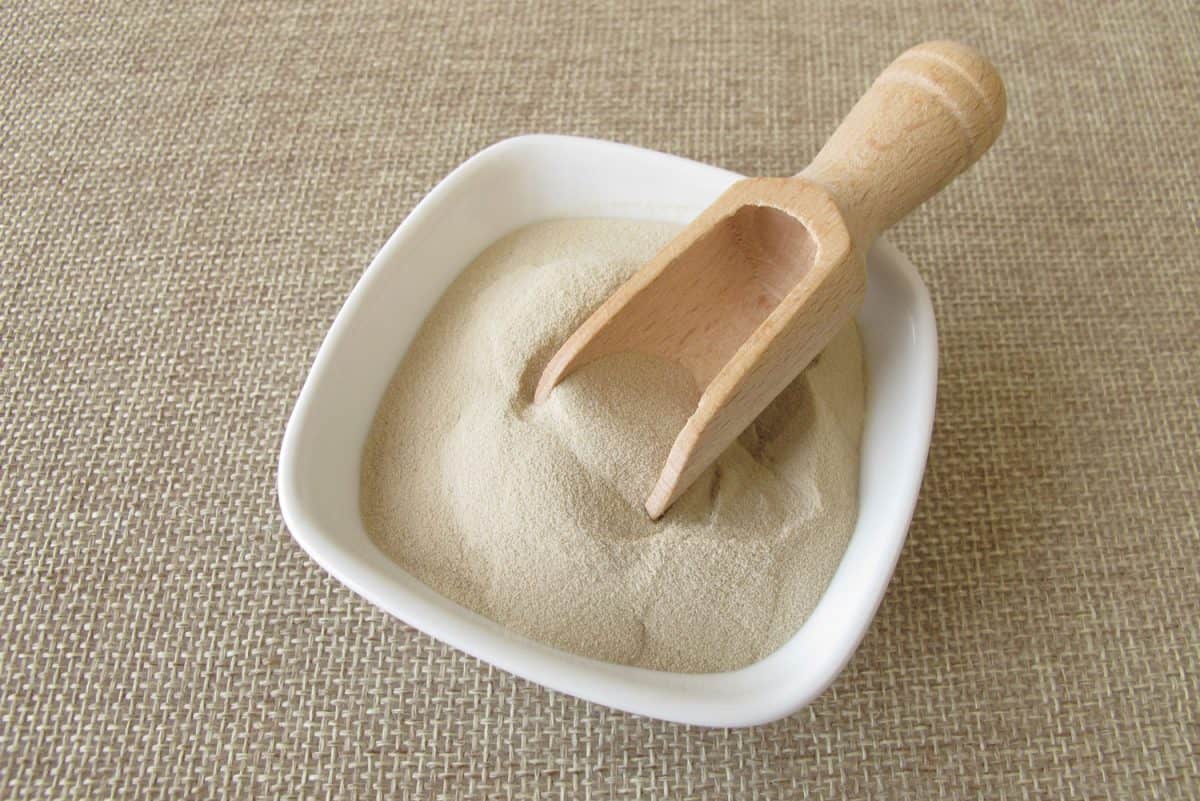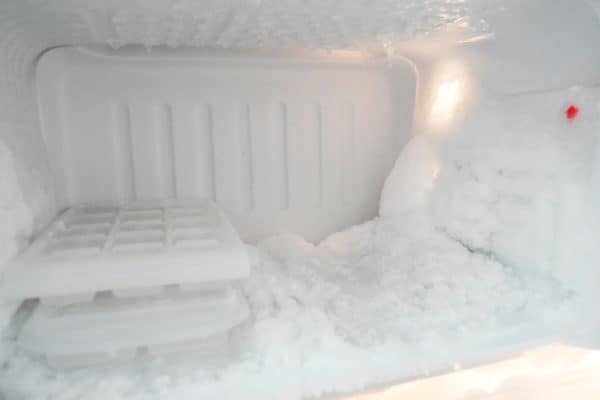A jelly dessert is a treat favored by many, whether it's for the summertime or as a quick snack. However, you would have to preserve it one way or another, especially when the weather is hot. But when using other ingredients, jellies may freeze in different manners. We delved into what happens to agar jelly when it freezes, and here's what we got.
Simply put, you can't exactly freeze agar jelly. Agar is known to be plant-based gelatin, with the main ingredient being algae extract. When used in making jelly, it can produce a completely different texture although replicating the gel-like feeling. However, gels made from agar become more sensitive to freezing. As a result, the jelly can lose its structure, therefore, losing the firmness.
One way to keep its shape during freezing is by applying high pressure to the frozen jelly. With the proper freeze-thaw technique, agar jelly can keep hold of its shape. Regardless, there are several ways agar can be used other than for making jelly. Keep reading to find out more about agar and how to keep it preserved.
NOTE: WE MAY GET A COMMISSION IF YOU DECIDE TO MAKE A PURCHASE THROUGH THESE LINKS. THERE'S ADDITIONAL NO COST TO YOU. CHECK THE BOTTOM OF THE PAGE FOR MORE INFORMATION.
![Agar agar citrus jelly dessert closeup, Can You Freeze Agar Jelly? [And How To]](https://forfreezing.com/wp-content/uploads/2021/05/Can-You-Freeze-Agar-Jelly-And-How-To.png)
How Long Can You Keep Agar Jelly in the Fridge?
Keeping agar jelly in the fridge is one of the recommended ways to preserve it. However, it's important to note that the jelly will collapse if it's disturbed before being able to set completely. So before moving it to the fridge, give the jelly enough time to fully set.
Agar jelly can stay in the fridge for up to 4 to 5 days. This is enough time to hold the shape and texture of the jelly. According to others, it can also stay in the fridge for up to a week (but nothing more) without ruining the structure. Compared to keeping desserts like cake in the fridge, agar jelly doesn't necessarily go through major changes unless it is completely frozen.
The advantage agar jelly has over the usual gelatin mix is that the jelly is firmer and feels more solid. But the downside is the agar component making it sensitive to freezing, causing it to fall apart when frozen. It's also good to note what other ingredients you put into the mixture. Say you added milk too, then you can expect the jelly to spoil a few days shorter than if it were purely agar.
In terms of keeping it in the fridge to freeze, take note that it could lose its firmness. Similar to freezing aloe vera gel, the properties of agar jelly could change if it's not stored and frozen properly. For agar jelly, it should be thawed in a certain way to keep it from falling apart.
How Do You Store Agar Agar Jelly?
Proper storing of agar, both as a powder and in its jelly phase, is crucial to keep it safe to consume. Despite its long shelf life, this can easily be ruined by three simple things:
- Unwanted bacteria contamination.
- Placing it somewhere humid.
- Leaving it to freeze for longer than needed.
There are a few things to note when storing agar jelly. Making jelly from agar means it sets at room temperature, which will take about an hour. This is because their setting properties are stronger than gelatin.
When storing agar jelly, take note that refrigeration isn't required to have it keep its shape. But this does help in keeping cold and good for longer days. In fact, it's commonly recommended to refrigerate agar jelly as a means of storing it.
In choosing a container, use one that's air-tight to keep the cool air from circulating too much on the jelly itself. As mentioned earlier, agar jelly loses its shape during freezing. A properly sealed container keeps the temperature of the jelly regulated, only enough to keep it cool.
Where you store the agar jelly also plays a big role in the results. Agar would normally have no issues under room temperature but leaving it that way isn't the best option for longer periods of storage. Storing it in a cool and dry place is recommended, especially when it contains ingredients that spoil quickly. Somewhere humid or moist may result in the growth of bacteria, eventually becoming the cause of its spoilage.
Does Agar Agar Powder Expire?

Using agar powder before its use-by date is best if you want to produce the best results. However, agar usually has a long shelf life when kept at room temperature.
In some cases, agar powder won't have an expiration date. Rather, it would be best to consume within a certain period of time. Like other ingredients, agar powder won't always be in top condition. Especially not after it has been used already and isn't stored as needed.
The best way to know if agar powder is still good to use when past its expiration date is through testing it first. The texture and consistency can vary depending on the powder's age. If the liquid sets into a firm block of clear jelly without flakes or grainy bits floating about, then there's no problem with using it.
It's also important to make sure the agar doesn't get contaminated. Once bacteria gets into the agar powder, it eventually spreads and causes the powder to become unusable. When stored somewhere humid, contamination puts the agar at risk of growing mold. If it's past the expiration date, it could be potentially more prone to this. Although, this is something that can be avoided with proper storage.
What Can Agar Agar Be Used For?

Although mainly being known as a vegetarian thickening agent in recent times, it had been used quite frequently for various dishes and experiments. Some of these include:
- A vegetarian substitute for thickening soups, desserts, and other dishes.
- Laboratory experiments wherein agar are used to feed and grow bacteria as well as other microorganisms.
- Impression materials for dentistry, mixed with other components.
- A key ingredient in laxatives and appetite suppressants by affecting the metabolism in the body.
The most modern use for agar is as an alternative thickening agent. Oftentimes, it's done to create desserts that need a jelly-like consistency. In fact, agar powder is commonly used to make jelly treats as a substitute for gelatin. It can closely replicate the results of gelatin. However, there is a significant difference in texture; wherein gelatin makes jelly bouncier and softer, while agar creates a firmer structure and more opaque color.
Agar also has its uses outside of cooking. It is often used in science to observe the growth of bacteria, mainly because of its gel-like properties. The nutrients are evenly spread within the space without harming the organisms being observed. The melting temperature of agar also makes it ideal for observations compared to other alternatives. While some bacteria eat it, it's not enough to disturb the purpose of the experiment.
In medicine, agar is used for purpose of weight loss. Studies show that the gel-like substance in agar stimulates the intestines. This bulks up in the gut and causes bowel movement to occur. Agar also tends to make the consumer easily feel full, which may affect the calorie intake. However, consuming agar should be done in regulation as the bulking effect may potentially cause bowel obstruction.
The Bottomline
![Agar agar citrus jelly dessert closeup, Can You Freeze Agar Jelly? [And How To]](https://forfreezing.com/wp-content/uploads/2021/05/Agar-agar-citrus-jelly-dessert-closeup-1200x800.jpg)
Agar's gel-like component makes it useful for various things, from science to cooking. It makes a great substitute for gelatin in making desserts. Although agar powder is used the same way to make jelly, it is handled differently.
Jellies made with gelatin require freezing to set. Agar jellies, however, can set at room temperature. Freezing them will only destroy the firm structure and consistency. While this would be a struggle to work with, particularly when you want to cool it, agar has a longer shelf life, therefore, making it available to use for longer periods of time with proper storage.



